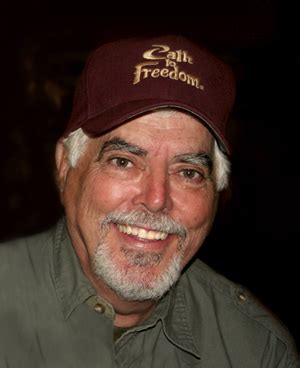A Quote by Wangari Maathai
Why do we have to have people come from afar to come and grow food for us, or to grow food to sell to us? It is partly because we are almost becoming used to people doing things for us. Like somebody else is going to solve that problem for us. And that to me is very disempowering system.
Related Quotes
We need to realize that these industrial methods of farming have gotten us used to cheap food. The corollary of cheap food is low wages. What we need to do in an era when the price of food is going up is pay better wages. A living wage is an absolutely integral part of a modern food system, because you can't expect people to eat properly and eat in a sustainable way if you pay them nothing. In fact, it's cheap food that subsidized the exploitation of American workers for a very long time, and that's always been an aim of cheap food.
As a society, almost one 1 of 2 adults has a chronic disease of one form or another. And where we're spending $3 trillion a year not on a healthcare system, but on a sick-care system that tries to patch us up after we've been made ill by a variety of institutional things around us - including a sick food system, air pollution, etc. Where we could be doing so much better even before people get to the point of getting sick.
Republican or Democrat candidate for Presidency ought to say: I look forward to working with the president to solve the problem. People expect us to come here to solve problems. And thus far, the attitude has been: Let's just kind of ignore what the president has said and just hope somebody else comes and solves it for us. And that's what I'd be running on. I'd be running on the economy and I'd be running on national security. But since I'm not running, I can only serve as an adviser to those who are.
We grow because the clamorous, permanent presence of our children forces us to put their needs before ours. We grow because our love for our children urges us to change as nothing else in our lives has the power to do. We grow (if we're willing to grow, that is: not every parent is willing) because being a parent helps us stop being a child.
The people who help us grow toward true self offer unconditional love, neither judging us to be deficient nor trying to force us to change but accepting us exactly as we are. And yet this unconditional love does not lead us to rest on our laurels. Instead, it surrounds us with a charged force field that makes us want to grow from the inside out - a force field that is safe enough to take the risks and endure the failures that growth requires.
Those of us who think about what we eat, how it's grown, those of us who care about the environmental impact of food - we've been educated by fabulous books, like Fast Food Nation and documentaries like Food Inc. But despite these and other great projects that shine a critical light on the topic, every year the food industry spends literally tens of millions of dollars to shape the public conversation about our food system.
I'm here because they've killed almost all of us, but not all of us. And that's their mistake, son. That's the flaw in their plan. Because if you don't kill all of us at once, whoever's left are not going to be the weak ones. The strong ones- and only the strong ones- will survive. The bent but unbroken, if you know what I mean. People like me. And people like you.
Do you realize that there is nothing in our genes that tells us when to die? There are genetic codes that tell us how to grow, how to breathe, and how to sleep, but NOTHING that tells us to die. So why do we? Because we literally rust and decay our bodies from the inside out with poor food and lifestyle choices.
Television, radio, and all the sources of amusement and information that surround us in our daily lives are also artificial props. They can give us the impression that our minds are active, because we are required to react to stimuli from the outside. But the power of those external stimuli to keep us going is limited. They are like drugs. We grow used to them, and we continuously need more and more of them. Eventually, they have little or no effect. Then, if we lack resources within ourselves, we cease to grow intellectually, morally, and spiritually. And we we cease to grow, we begin to die.
Intimacy requires courage because risk is inescapable. We cannot know at the outset how the relationship will affect us. Like a chemical mixture, if one of us is changed, both of us will be. Will we grow in self-actualization, or will it destroy us? The one thing we can be certain of is that if we let ourselves fully into the relationship for good or evil, we will not come out unaffected.






































